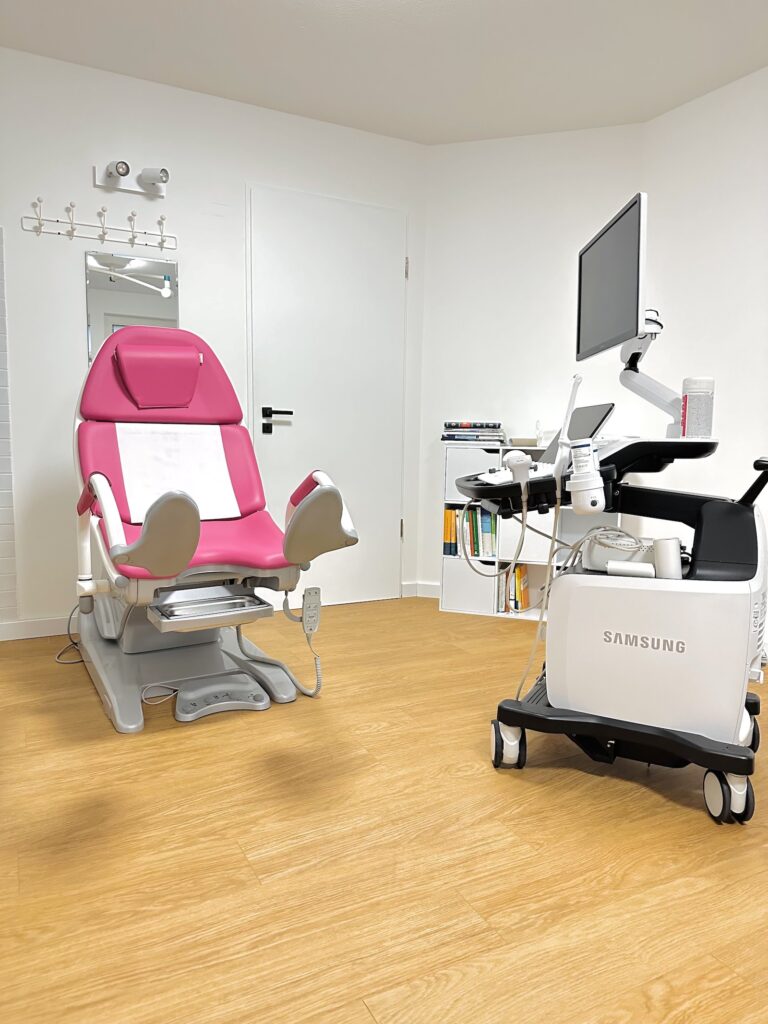Women's health
Your health in every phase of life. Whether it's screening, pregnancy support, menopause counselling or disease management, we are here to support you at every stage of your life. Our team of specialists is committed to providing high quality, compassionate and individualised care that takes care of all your health needs.
The importance of women's health
Women's health is an essential aspect of general health and well-being. It encompasses not only aspects of reproductive health, but also specific diseases and conditions that can affect women, as well as health challenges that occur at different stages of a woman's life. From the onset of puberty, through the childbearing years, to menopause and beyond, each of these stages brings unique health needs and challenges. To stay healthy, prevent disease and optimise quality of life, it is important that women have access to quality health care that is tailored to their specific needs.


Our approach to women's health
Our approach to women's health is holistic and patient-centred. We understand that every woman is unique and that her health needs may vary over the years. Therefore, we consider not only physical aspects, but also psychological and social factors that can affect your health. With us, you will receive comprehensive care that includes regular check-ups, counselling on health-related issues, vaccinations, screening for sexually transmitted diseases and treatment for specific conditions. We place great emphasis on developing prevention strategies and educational programmes to help you make informed decisions about your health.
Women's health services
We offer a wide range of services tailored to the specific needs and challenges of women's health. These include not only gynaecological check-ups, but also birth support, menopause counselling, cancer screening and treatment, management of gynaecological conditions such as endometriosis and polycystic ovary syndrome, osteoporosis screening and treatment, and much more. Our experienced medical team uses the latest technology and medical research to support you at every stage of your life and promote your health.

Frequently asked questions
Our practice focuses on your health and well-being.

What is meant by women's health?
Women's health refers to the health aspects that are specific to the female body. It covers a wide range of topics, from reproductive health to the prevention and treatment of diseases that affect women more frequently.
What does a preventive medical check-up involve?
A screening can cover various aspects, including gynaecological examinations, breast cancer screening, bone density tests and screening for cardiovascular disease, depending on your age and individual health history.
How often should I go for a check-up?
The frequency of screening depends on your age, health history and specific health concerns. However, it is generally recommended to have a screening at least once a year.
What is the menopause and what symptoms can it cause?
Menopause is a natural phase in a woman's life that occurs when menstruation stops and fertility ends. It can cause various symptoms, including hot flushes, sleep disturbances, mood swings and physical changes.
What can I do to detect breast cancer early?
Regular breast self-examinations and regular mammograms are key elements in the early detection of breast cancer.
How can I prevent cardiovascular diseases?
A healthy diet, regular physical activity, avoiding smoking, good control of blood pressure and cholesterol, and stress management can help reduce the risk of cardiovascular disease.
Can I still get pregnant during the menopause?
While fertility decreases with menopause, it is still possible to become pregnant until menstruation stops completely. If you want to avoid pregnancy, you should continue to use contraceptive methods.
What changes can I expect during perimenopause?
Perimenopause is the phase before the menopause when a woman's hormones begin to fluctuate. Symptoms can include irregular periods, hot flushes, sleep disturbances and mood swings.
Can I take medication during pregnancy?
Some medicines are safe during pregnancy, others are not. Always talk to your doctor before taking a new medicine.
What are the risks and benefits of hormone replacement therapy (HRT)?
HRT can help relieve symptoms of the menopause, but it also carries certain risks, including an increased risk of certain types of cancer and cardiovascular disease. The decision for or against HRT should be made individually based on your symptoms, health history and personal risk factors.